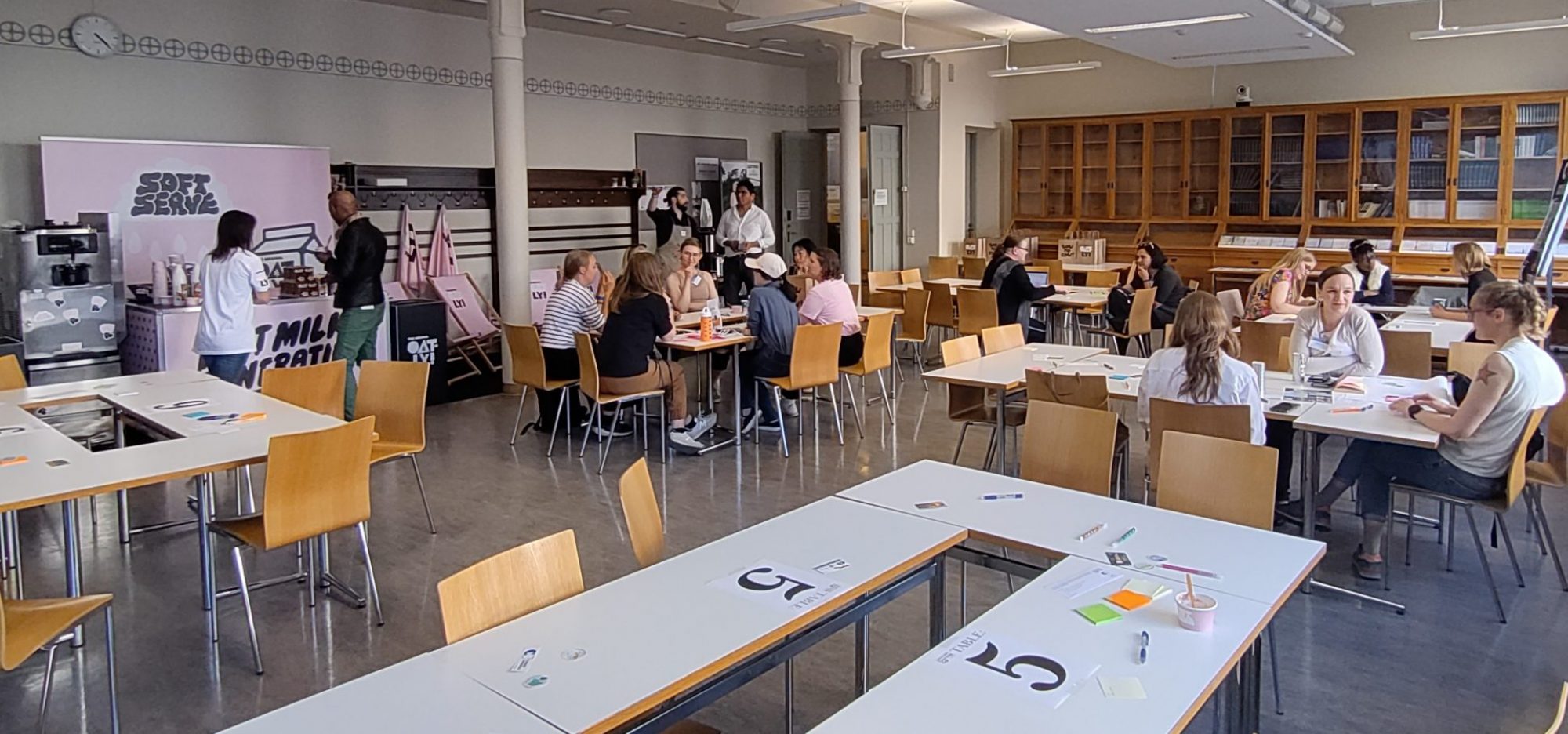Session questions(s):
How to create opportunities for engaging learning online?
How to build in opportunities for practice and active discussion, when students mostly study in MOOCs and asynchronous learning space?
How to facilitate different pedagogical spaces outside of formal learning environments?
Session description:
The main topics of discussion were related to different examples of teaching online and making it engaging for the students.
We shared a lot about the challenges of online teaching when it’s not connected to a physical element as well, there are less opportunities for putting ideas into words and really engaging with the topics in a personal way or see how it makes sense for you as a learner. How to combine online and physical learning spaces?
It was also important to think about what types of learners MOOCs and other asynchronous learning formats work for, it’s not inclusive of all. We also touched on media literacy and students needing the competences to understand and identify different kinds of texts and understand their context. That also lead to a conversation about the “hierarchy” of competences – what is more valuable and what should be prioritised more? That’s not always clear or something that we’re in agreement on. There are just more and more demands of the curriculum but not necessarily a clearer prioritisation of understanding what then has to be left out. We discussed how the knowledge gap on sustainability knowledge is not only among students but also teachers. Not strong enough knowledge on sustainability terminology, inability but also unwillingness to define concepts – how do we still discuss and explore, work with them? While putting knowledge into practice is often a goal or ambition, we also discussed what “practice” means and whether an engagement and exploration of the topic is also practice – not only having to come up with a “solution”, “business idea” or so on.
The group present was a mixed of professionals, teachers and students from different countries. Both people who teach in Finland and abroad, but also engage in curriculum design and also people who study.
Session lesson(s):
There were many great insights from the conversation and the session title became indeed the starting point from where we moved to many different places. Some key insights were:
– What do we mean by practice? Engaging actively and critically with terminology, learning to challenge and engage with concepts in a nuanced way, being able to use them and discuss with others is also a form of practice
– Students need to learn to challenge! To learn how to question what they’re presented; whether that is a challenge from a third party, a company or the assumed needed solutions, it’s important for students to not take for granted what’s being presented or to acknowledge the premise of that question or challenge.
– Engage with different stakeholders to understand what’s missing in terms of the skills and experiences where teaching, one person shared about the CEO breakfast, where the staff and teachers of the university engage with different employers and non-university actors to see how the world looks from their point of view
– Social skills and competences are really the key issues – also in terms of dealing with sustainability issues, while technology is important it’s just not enough
– If we want to encourage certain skills and learning in students we need to make sure that the assessment reflects and rewards those behaviours
– Contextual understanding, living with uncertainty, but still being able to take some actions and engage in uncertain situations are really key – it’s not enough to wait till the concepts are all clear and well-defined – that’s not the reality we’re dealing with today! How to create those spaces and learning opportunities for students!
Session keyword(s):
informal learning, online pedagogy, practice, activating knowledge
Stinne Vognæs
Una Europa / University of Helsinki
